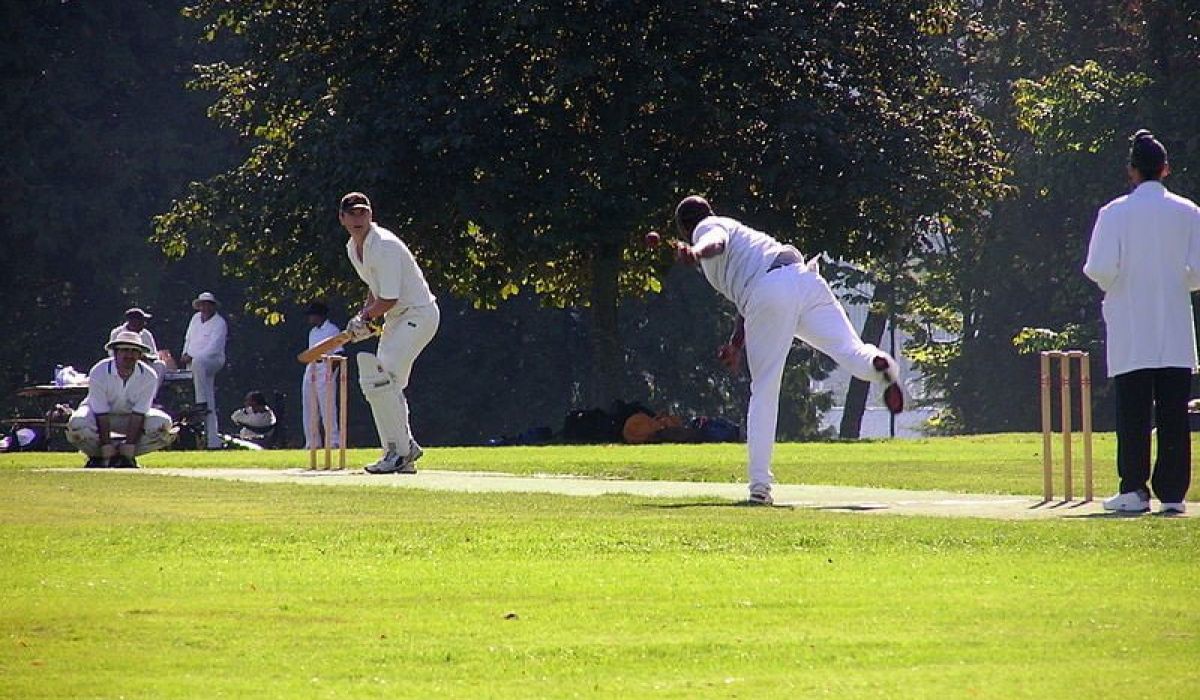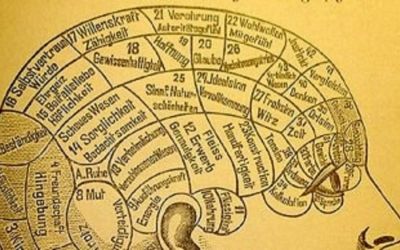
Grit and Grace of Coach Errol Browning
Cricket is in my blood. My brother Peter and I were bowling bouncers and swinging sixes on the makeshift pitches of our family home of Morunda, ever since I can remember. From the broken window louvers (which counted for six) of our first backyard pitch to the purpose-built wicket that my father constructed for us in the summer of 1977, Morunda Cricket Ground (MCG) was home to some of the fiercest of rivalries that cricket had ever seen! Decades later, the company that I have built in Japan pays tribute to those times and the MCG, also taking the name Morunda.
My greatest memory of those days is of my equally cricket-mad Dad, well into his sixties, picking up a bat one afternoon when we had visitors and driving the ball over the bowler’s head, Victor Trumper style. My father was 13 in 1930 when the greatest cricketer who ever lived, Donald George Bradman (“the Don”), demolished the English on their home turf. Dad would stay up late at night, listening to the cricket game on the radio in the outback of New South Wales, Australia. Cricket was in his blood, too.
The first statistic that I ever remembered was that of Bradman. He played 52 test matches for Australia, scored 29 centuries, 9 of which were double centuries, and 3 were triple. He averaged 99.94 runs every time he batted. The next best batting average in the history of 140 years of test cricket was earned in the 1960s. In our household, Bradman was the greatest sportsman who ever lived. “He was more than just a batsman; he was half the bloody side,” Dad would espouse decades before Paul Kelly’s iconic song about the great cricketer.
I was baptized in the spirit of the Don. When I was 11 years old, I wrote him a letter, to which he replied, as he did to thousands of letters each year from fans worldwide. Dad underscored the Don’s character as much as he did the latter’s sporting accomplishments. There was a certain way to live life, and the Don epitomized it the right way. A life worth living needed to be lived with integrity; a person had to play cricket and live in a tough, aggressive, confident, and competitive manner, without complaining, whining, or sulking. Accept the call of the umpire.
My first cricket coach embodied Dad’s philosophy. Errol Browning was tough. In our first match under him, he was also a player. It was a brutally cold November spring day in Armidale. We played on a barren field in the middle of a racecourse, where the Northern Tablelands winds would bite into bare legs. Errol followed the rules and was a stickler for doing things right; if we had a jumper, it must be white—if not, too bad. There were no helicopter parents in 1979 Armidale.
Errol was the captain, and as the days grew warmer and longer, it must have been difficult to keep a bunch of kids focused for six hours on the field or waiting for a bat. James Crocker (Crock) remembers, “There were times that we need[ed] a kick in the pants; although we grumbled a bit at the time, we all appreciated that that was what we needed.”
I recently read the book, The Captain Class, by Sam Walker (2017)—funnily enough in relation to my professional life, rather than my spell as a cricketer—but I have found myself particularly reflective of the great captain of my youth. To me, Errol epitomized the kind of “class” described by Walker. On one hand, Errol was doggedly determined, played to the edge of the rules, boxed ears when required, led by example, and was never scared to stand up for the team or what he believed to be right. On the other hand, the man who has had such a lasting impact on my life also wiped our noses, gently encouraged us (when necessary), and led us, not from the position of glory-seeking authority, but from the back, carrying us all through each victory and loss. I look back on our team and my teenaged years playing the great game and feel ever more appreciative of the way that Errol touched all our lives.
Our team comprised 12–14-year-old boys. We played in the B-grade competition, whose athletes were pub cricketers and stars of Armidale’s yesteryears. Our opponents’ ages were twice ours. They would pull up in their utes, flatbed trucks, and motorbikes, and we rocked up on our pushies (bicycles). In one of our first coaching sessions, by the nets of O’Connor Catholic High School, which the entire team attended, Errol declared that we would win the competition in our third year, and he would buy caps for us in recognition of our achievement. We did not really know what that meant, that is, what it took to win, but we understood the cap part.
Our first year was a mixed bag with about a 50% win ratio. In our second year, we hit our stride, but I did not. I opened the batting with Crock and recorded one failure after another disappointment. My hopeless batting at the top of the order might have been a blessing in disguise since it offered an earlier opportunity for the stars of our team to come to the crease—Peter Browning (Bummy, who was Errol’s son) and Paul Ryan (Bede), who would go on to play first grade in Sydney and become a captain of St. George’s first grade team for a title win in 2001. These two, along with great bowling from Mark McDermott and Alan Bourke (Chook), led us to one victory after another. However, as our season marched on, I was seen marching off the field earlier and earlier.
Crock remembers Errol putting together a number of captain’s knocks, and he “tried to improve” us boys as cricketers. We were in real trouble a few times, but Errol placed us in winning positions. At other times, he would take it easy and let us win on our own. He was a bloody good cricketer, and I often thought that he could have dominated more, but he wanted to give us young fellows the experience and not adopt the habit of relying on him.
The best captains are never afraid to put their teams ahead of their own egos. The great Bill Woodfull, who captained Bradman and Australia through the infamous “bodyline” Ashes series in the 1930s, happily played out of position to accommodate young talented players—at the expense of his own batting average. Woodfull’s legacy was not his tactical skill or personal accomplishments—although many—but the admiration he commanded from his players and observers for his sportsmanship and ability to mold a successful and loyal team through the strength of his character. Quite similar to Woodfull, Errol was able to cultivate a sense of camaraderie belief, and drive among his teammates, which made both teams so successful.
Fondly remembering Errol as always putting the team first, Bede says, “He was inclusive and gave everyone the opportunity. He was selfless, and he was someone I didn’t want to let down.” The future Sydney first grade captain remembers his first century, “We opened the batting against Churches. We batted through the afternoon, and looking back, I’m sure he could have, at any stage, opened up the shoulders against their attack and scored a big hundred. He did score 105 not out, but he spent most of his innings nursing me through my first 100 in senior cricket. I only just made it to 100 not out at stumps. Forever thankful.”
I could go on listing examples such as these, and there are many that I won’t remember. Errol’s character oozed a selflessness that always put his team first. I’m sure that he would have happily not made a century that day if it was necessary for Bede to make his first. Through his generosity, he allowed each of us to grow as players and as people, understanding that a team’s success was more than the sum of its parts. We were all part of a greater whole and understood the roles we had to play in it.
No one would have complained or argued with Errol if he had dropped me from the team or at least put me down the order in the batting lineup. He did not do so but stuck with me. My confidence was at an all-time low when the semifinal came around. Our opposition was Hillgrove, named after the gold-mining town 31 km east of Armidale. Hillgrove was all out on the first day, which meant that Crock (my opening partner) and I had to go out to bat late in the day. I took guard and faced the first ball. The Hillgrove miner (probably a bank teller) ripped in and dug one short, which whizzed past my helmet. The next was outside the off stump, and I played and missed. I left the third ball without playing a shot, and my stumps exploded. Out for a duck without playing a shot doesn’t get more humiliating than in the game of cricket (apart from the day when I dropped three catches, but that’s another story). On my return from the field to my teammates, none of whom I could look in the eye, Errol didn’t comment, offering no sympathy, “oh, you’ll do better next time,” or encouragement. It was business as usual; we had a semifinal to win. His silence was empowering. My failure was not the team’s but mine. At the same time, the team and winning came first, not my ego or feelings. We won, and it was on to the final against “The St. Kilda Hotel.”
On the day of the final, Errol took matters into his own hands. He wasn’t leaving anything to fate. He bowled and bowled and bowled on a scorching summer afternoon. I guess he was in his 40s at the time. He was a war horse. His strength, physical endurance, and tenacity were inspiring. St. Kilda was out late in the day. Similar to the semifinal, I had to bat for a dozen overs, in dwindling light before the day’s end. We would front up the next day after the 8:30 AM Mass.
The game was played at The Armidale School (TAS)—established in 1894, a boys’ private boarding and day school that served the landed well-to-do—on an English-type oval surrounded by 100-year-old pine trees and buildings. The pitch was made from clay and coir matting, pulled tight with pegs securing the surface. The great Don Bradman played on similar wickets at Bowel in the 1920s.
Crock and I walked out to bat, and I was to face the first ball; it was best to get the pain over with quickly, I guess. My stomach was in knots; oh no, not again was my only thought as I took guard with my trusty Grey Nicholas Scoop (bat). I waited nervously for the giant of a man, whom I could imagine to be from the front bar of the St. Kilda Hotel, hurtling toward me. The ball pitched short of a length and was aimed at my thigh; I got some bat on it and scampered safely to the non-strikers’ end to let Crock have a go. I was off the mark. Would this day be different? Crock and I made it to stumps, and we would be back the following day to do battle.
The sun shone brightly on this Sunday, and we headed to the grounds after Mass. Dad was there to watch, so the pressure was on. Suddenly, it all seemed easier as I blocked and prodded, and the runs started to flow. It took me the best part of 2 hours to get to 47, where I played and missed, and the ball rapped me on the pads; I was given out a leg before wicket (LBW). Maybe for the first time that year, I proudly walked off the field, and we won the final. While I was taking off my pads, and my mates were congratulating me, Mr. McDermott asked, “Do you think you were out?”
“Yes, I reckon I was,” I replied.
With the game over, and Errol’s goal of winning the competition was achieved in two years, not three, it was time for celebratory pies and coke. On the way home, Dad told me that he was prouder of the way I handled Mr. McDermott’s question than he was of my final winning knock.
As the years passed, our accomplishments became grander, and the trophies of yesteryears were buried in boxes. I often think of the times I spent with Dad around sporting fields. We all have great memories of victories won and games where we could, should, or would have been victorious if only…. It is in these near misses, which at those times felt like failures, that the seeds of character are planted. All of life’s lessons learned and integrity formed in heartbreak offer us profound insights about the meaning of life. We learn little from our success.
Errol and Dad taught me how to play tough. Don’t take any prisoners, and hide the passengers in your team as best as you can. Bury the opposition, humiliate and destroy it, but once it is done, it is only a game, and memories fade. What is remembered is character and the way you played the game.
Errol’s captaincy has been one of the most lasting influences in my life. He remains one of the greatest examples of a man and a captain whom I have come across. Sam Walker (2017) lists seven common traits of the greatest captains throughout history. Errol was a prime model of all of them; I feel incredibly privileged to have played under him in my youth. The seventh trait that Walker describes is “The Kill Switch: Regulating Emotions.” This is perhaps the most elusive of the seven traits in the passionate arena of sports and what I remember most poignantly when reflecting on Errol—he never lost his temper. He had his moments of anger but never lost control. For me, alongside all the other qualities he exuded in droves, his self-mastery was paramount to his success, as it allowed us to wholeheartedly trust in our captain.
Below is Walker’s (2017) list of seven common traits of the greatest captains in history:
The Captain Class: The Hidden Force that Creates the World’s Greatest Teams
1) They Just Keep Coming: Doggedness and Its Ancillary Benefits
2) Intelligent Fouls: Playing to the Edge of the Rules
3) Carrying Water: The Hidden Art of Playing from the Back
4) Boxing Ears and Wiping Noses: Practical Communication
5) Calculated Acts: The Power of Non-Verbal Displays
6) Uncomfortable Truths: The Courage to Stand Apart
7) The Kill Switch: Regulating Emotions
Recent Posts
- Top sporting coaches and business leaders have a lot in common
- Elevating Leadership: Insights from Japan’s healthcare sector
- How to be a country manager
- Here are four things your firm can do to attract and retain top talent in Japan’s pharmaceutical and medical device industry:
- Build a Strong Employer Brand – What can you do if your company stinks?


